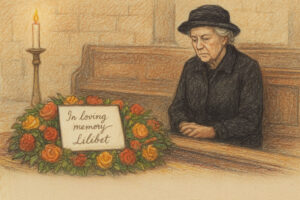I think you probably know the great novel “To Kill a Mockingbird” written by Harper Lee. The story takes place during the time of the Great Depression (1930) in Maycomb, an old town in Alabama. The narrator is Scout Finch, a six-year-old girl who lives with her older brother Jem and her father Atticus, a widowed middle-aged lawyer.
Atticus is called upon to defend a black man named Tom Robinson, who was accused of raping a young white woman named Mayella Ewell. Although many of Maycomb’s residents disagree, Atticus agrees to defend Tom at trial. Other children make fun of Jem and Scout because of the challenge that their father Atticus assumed, and they call him “black lover”.
Atticus succeeds in proving that both Mayella and his father Bob Ewell, who is a drunkard, have lied in their accusations. Although there is considerable evidence of Tom’s innocence, the jury finds him guilty.
The children absorb the example and teachings of their father Atticus, especially when they see his reactions, such as when he insists on not judging a person until they have understood the motives and reasons that determine his behavior: “If you can learn a simple trick Scout, you’ll get along a lot better with all kinds of folks. You never really understand a person until you consider things from his point of view…until you climb into his skin and walk around in it.”
I would like to highlight both aspects of Atticus’ teaching: the teaching itself and the manner in which he teaches. I think both things are important.
First, the teaching itself: He tries to teach his children that the real value of a person is inside. If we want to know a person we need to know him from the inside. External things can be manifestations of the inside of the person, but not necessarily. Therefore, when we need to understand a person, we must be very careful not to judge that person by external or superficial things which, while they are easier to judge, can give us a wrong conception of that person.
Second, the manner in which he teaches: His children learn from his example of life. They learn a lot when they see the reactions of his father; when they see that his life is consistent with his teachings; when they see that he struggles much for not giving up even when many others did.
I would say that these are small and simple lessons. Lessons that many times are (or seem to be) anonymous. Lessons in which perhaps no one will even realize that they are learning, but in fact they are learning and in the future those lessons will be very valuable for them.





